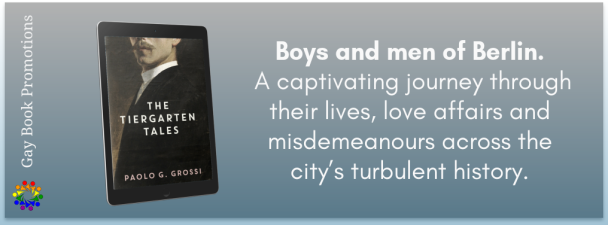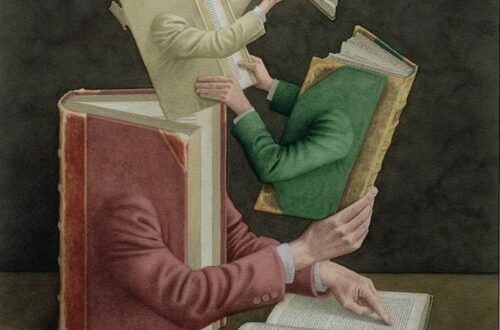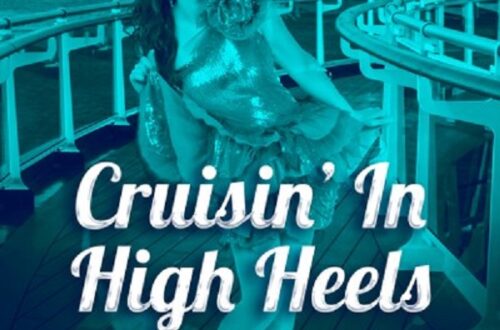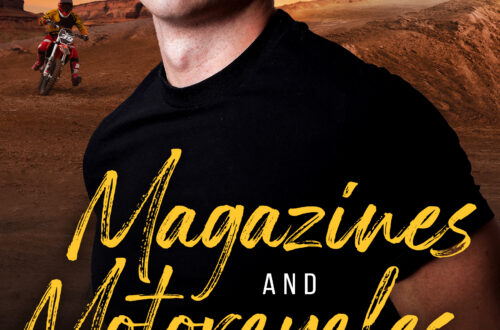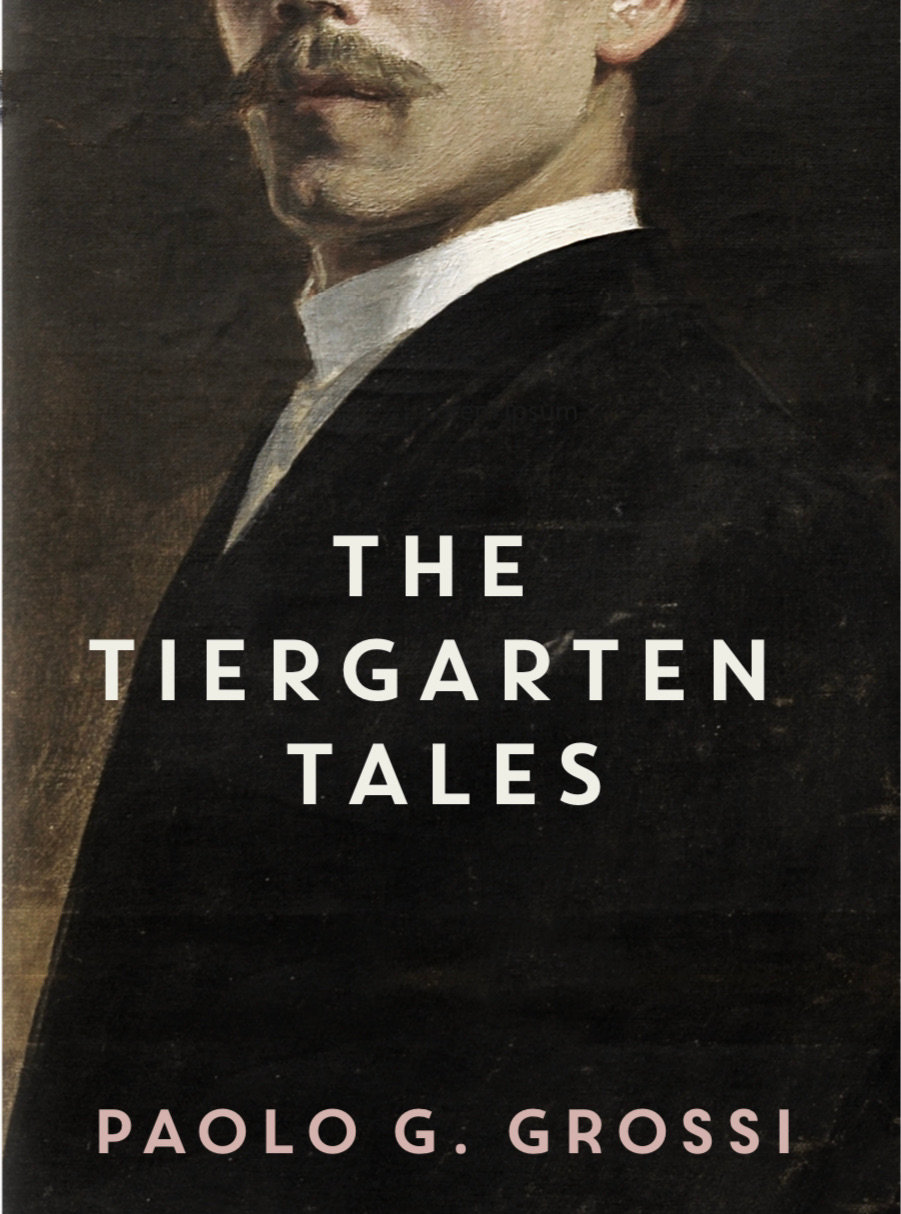
BLOG TOUR: The Tiergarten Tales by Paolo G. Grossi (Excerpt + Q&A with Author)
BLOG TOUR

Book Title: The Tiergarten Tales
Author: Paolo G. Grossi
Publisher: The Conrad Press
Cover Artist: Charlotte Mouncey
Release Date: May 31, 2021
Genres: LGBTQ+ / Historical Fiction
Tropes: Boys’ friendship
Themes: Toxic masculinity and fatherly love
Heat Rating: 3 flames
Length: 90 035 words / 384 pages
It is a standalone book and does not end on a cliffhanger.
Buy Links
Amazon US | Amazon UK | Waterstones

Berlin. Its boys. Their stories
Blurb
Boys and men of Berlin. A captivating journey through their lives, love affairs and misdemeanours across the city’s turbulent history.
Felix and Walther bestride a deep class divide, forging an enduring bond in 1890s Prussia. Kaspar and Max navigate the fraught upheavals of the Weimar Republic by skilfully marketing the only commodity in demand. Young Kazimierz leaves his impoverished Silesian village and sets off on an epic journey to the Prussian capital, the seat of an ageing Frederick the Great. His heavenly beauty, endearing naivety and, ultimately, fate will transform his life once through the gates of the city.
Echoes within echoes. Circles within circles. Wealth, poverty and moral compromise. The privilege and toxic masculinity of the Prussian officer class.
Excerpt from The Lodger
Grey sky. It has been so for the last few days, or weeks, months perhaps. It had been his decision to move here so there is no one else to blame. That irks him no end, no
one to blame, no one to shout at.
Up here on the sixth floor one can barely hear the traf-
fic below and there is never much of it anyway; it’s early morning and he lives on a quiet and leafy street, upmarket, expensive, unaffordable for most people.
The air is warm and all he wears is pyjama bottoms; he prefers to walk around the apartment barefoot though he misses a soft thick carpet. But more often than not homes come with beautiful wooden parquet here: beautiful but uncomfortable for his feet which have lost some of the supple elasticity they used to have. Age, always age; he wishes he could log out from thinking about ageing.
Coffee time. He walks back inside through the French doors and inserts a capsule in the machine, the mechanical noise reassuring, another morning with the same routine.
Frau Greta is on her way and he needs to get out. It’s his rule number one or, rather, hers: get out of the cleaning lady’s way, you’re just a hindrance and when she took on the job she dropped a few stern hints which allowed no debate. Very German, he smiles.
No breakfast at home; he’ll walk to the Bismarck Bistro for mid-morning brunch. The temperature is warm enough to sit outside with just a light jacket and watch the world go by.
Except that it never does. The bistro is quaint and the fare of good quality but it never seems to be that busy, though the lack of a crowd has lately developed into a pleasure rather than a shortcoming.
Either way the bistro is close, reasonably priced, and on the edge of that vast and wild forest in the centre of the city peculiarly described as a ‘garten’.
He’s ready now and he feels pleasantly casual: slacks, a polo and a light blue jacket. A scarf around his neck protects him from the light breeze.
And sunglasses. He has spent a good chunk of his previous life in a part of the world where everyone wore sunglasses, outdoor and indoor. You could never see anyone’s eyes. Beautiful eyes, old eyes, blue, green, black, it didn’t matter; they were all behind dark lenses. All the fucking time.
But he has kept the habit; perhaps one day he’ll lose it. Habits come and go.
He strolls along the oak-lined paths before turning towards the bistro. Empty roads. Is that Sunday? Perhaps not, but the roads are always empty here anyway. Which he loves. Or not. He’s not yet sure.
When he reaches the bistro, he lazily scans the area: a few tables outside, almost empty as usual, one middle-aged guy tapping away at his laptop in the far corner.
He takes a seat and then remembers the free newspapers inside so he gets up again and strolls in to pick up a copy of the Morgenpost.
Ella is at the till. The owner greets him in a low voice and with a smile. She must do that with all the regular customers, he thinks, but he likes it as it makes him feel special even if he is dead sure he isn’t.
After three years his German has improved dramatically. He has subjected himself to a gruelling and eye-wateringly expensive blitz of private tuitions. He can now finish read- ing long-winded and often completely irrelevant opinion pieces. Nothing much ever seems to happen here anyway. He prefers books to news but he forgot to bring one along.
‘Good morning sir, what can I get you today?’
Not Ella’s voice. It sounds soft and warm, young, almost female though clearly not.
As he turns, a young man of perhaps less than twenty stands there with a smile and detectable eagerness. The eagerness of the new employee, the excitement of a new job, the freshness of a new chapter.
The boy gently shifts the wheat blond fringe along his forehead; a pair of black framed spectacles sits on his angular nose, the thick prescription lenses magnifying his light blue eyes.
‘Good morning, let’s see: a cappuccino for a start, I haven’t decided on the food, may I have a minute?’
‘Sure, sir, I’ll get the drink ready for you, take your time.’
The manners are calm and polite. Unassuming, he ponders.
After a few minutes the young man returns with the cappuccino and briefly stands there, clearly waiting for the order but with no impatient insistence.
Q & A With Paolo G. Grossi
Tell us something about yourself that most people don’t know.
Well, I had a pretty ‘colourful’ life so there might be too many stories. In my youth I once went for an audition for a gay porn film. Turned it down but it was fun!
What’s your favourite scene in your latest book and what makes it a fave?
A conversation between the main character Felix and his father in their carriage. My editor also found it very moving. Being set in 1890s Prussia, the feelings are never expressed in full but the affection surfaces between the rarefied lines of the dialogue.
If you could spend some real-life time with one of the characters in the book, who would you choose and why?
It would be Felix, the main character. Not all readers have been sympathetic to him and I understand why. He’s rather boisterous and competitive, beside having his childhood friend under his (admittedly loving) thumb. But he’s also self-destructive and reckless. Ultimately, though, unbearably adorable.
On the flip side, which character would you probably least get along with? Why?
It has to be Baron Von Mutthe, a rather insufferable oaf.
Let’s take off your author cap and put on your reader cap for a moment: what do you look for in a book, what sort of protagonists do you love, and do you have a favourite genre?
Beside writing LGBTQ+ / Historical Fiction, I am also an avid reader of it. Achilles and Patroclus in Achilles’ Song are two of my favourites. However, Bagoa, the Persian boy in Mary Renault’s novel is definitely the best.
What books and authors would you say influenced you to become a writer?
Definitely Mary Renault’s The Persian Boy.
What are your least and most favourite things about being an author?
The publishing process is diabolical. I have a very nice and friendly publisher, but it is still a long slog with delays, mistakes, corrections and heaven knows what.
Imagining the story from scratch and developing it in my mind is surely the best part.
What’s the best piece of writing/author advice you’ve ever received that you’d pass on to someone just getting started in the business?
I’ll give you two: Margaret Atwood’s advice to authors was more or less to keep their readers locked in perpetual curiosity. Nancy Mitford declared in an interview that her main fear was of being boring. It is mine too. I’d hate to be boring.
Have you ever written a line, paragraph, or passage, and thought, “Darn, that’s pretty amazing, even if I do say so myself”? What was it?
‘He had tried to reassure him as best as his broken heart was allowing him to utter any word of comfort: this was still his home and he was still their boy.’
What’s the one genre/sub-genre you haven’t written yet, but would love to? What’s kept you from it so far?
I’m afraid I will stick to LGBTQ+ Historical Fiction.
If you could choose one of your books to be adapted for the silver screen, which would you choose? Why do you think it would translate well to film?
Well, I’ve only written one so far but I think The Tiergarten Tales would be amazing as a film or, even better, as a television series. The tales are set in different periods, however they interconnect and characters and situations are revisited. That makes for a gripping plot line.
What’s the one book you’ve read in your lifetime that you wish you’d written? Why did this particular book leave such a lasting impact on you?
The Master and Margarita. Because it’s rather crazy.
If I were to interview your main characters, what would they say about you?
That I have been treating them nicely.
Let’s pretend you’re taking a road trip, and you can choose any three of your characters to go with you. Who would you want on the ride-along, and why them?
At the risk of being boring, Felix, Walther and Frederick the Great. The first because he is too beautiful to be left behind. Walther because of his heart of gold and the dead king because, well, because I’ve never met a king.
If you could sit down to dinner with any author, past or present, who would you choose, and why? What are some things you’d want to chat about?
Tolstoy. I would ask him how he wrote Anna Karenina, the masterpiece of all masterpieces.
If you were stranded on a desert island, what are three things you’d absolutely have to have?
My opera CDs.
If James Corden invited you to Carpool Karaoke, what song(s) would you sing with him?
‘So in Love’ by Cole Porter. I doubt he would be able to sing it though!
If you could be any animal in the world, what would you choose? Why?
A black panther. For her elegance.
If you could travel back in time, with all your years of experience and wisdom intact, what advice would you give to your teenage self?
Be patient. Don’t drop out of university. Not everyone hates you.
If you were to sit down and write your autobiography today, what would the title be?
I have written one though not published it. It’s called Burning Youth.
Star Trek or Star Wars – both or neither? Explain.
Neither. Sadly I don’t get Sci-fi. But then, I don’t drink Champagne either!
If you could be any fictional character who would you like to be and why?
An opera composer in the nineteenth century.
About the Author
Paolo G. Grossi was born and raised in Milan. Thirty years ago, he spent a weekend in London and decided to stay. Like most Italians, opera and the visual arts are his main passions. When not writing, you will surely find him attending a performance, visiting a museum and, of course, spending some time cycling in Berlin or around the Wannsee. He lives in London with his partner David.
The Tiergarten Tales is his first book.
Author Links

